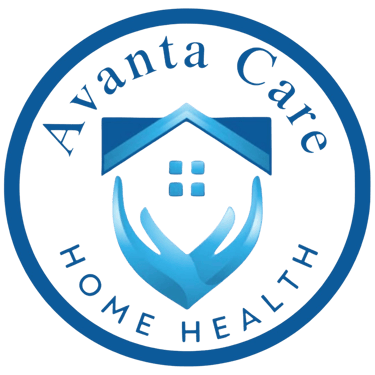The Hidden Healthcare Risk: Medication Mismanagement Among Seniors
We go beyond providing care — we provide peace of mind. Every caregiver is trained to handle medication support responsibly, ensuring seniors remain safe, healthy, and confident in their daily lives.
8/29/20254 min read


Understanding Medication Mismanagement
Medication mismanagement refers to the improper handling of prescribed medications, which significantly affects the health and wellbeing of individuals, particularly seniors. As older adults typically manage multiple chronic conditions, they often find themselves taking numerous medications simultaneously, which increases the risk of errors. This situation poses a significant concern, as studies have shown that medication errors can lead to hospitalization, complications, and sometimes even death.
One of the most common types of medication mismanagement is missed doses, where seniors forget to take their prescribed medication due to cognitive decline or complex medication schedules. Additionally, administering the wrong medication or incorrect dosages can occur, often as a result of confusion between similarly named prescriptions or lack of understanding of dosages and usage instructions. Another concerning aspect is the occurrence of dangerous drug interactions, where multiple medications taken together can lead to adverse effects that cause serious health issues.
Statistics indicate that approximately 40% of seniors experience medication mismanagement, which contributes to nearly one-third of hospital admissions for older adults. This alarming figure underscores the urgency of addressing this issue. Furthermore, research has highlighted that improper medication management exacerbates existing health conditions, leading to longer recovery times and increased healthcare costs for individuals and the system at large. As the senior population continues to grow, focusing on enhancing medication management practices becomes increasingly vital to prevent potential health disasters.
Given the complexity of medication regimens among seniors, it is essential to implement strategies that promote better adherence and understanding of medications. Such proactive measures could significantly decrease the incidence of medication errors and ensure that seniors receive the optimal benefits from their prescribed treatments.
Why Medication Management Matters
Proper medication management is a crucial aspect of healthcare, especially for seniors who often have multiple chronic conditions necessitating complex treatment regimens. Adherence to prescribed medications significantly contributes to better health outcomes, as it ensures that seniors receive the full therapeutic benefits of their treatment plans. When medications are taken as directed, there is a marked improvement in managing health conditions, resulting in fewer complications and a reduced risk of hospital visits. This adherence plays a vital role in maintaining stability in chronic illnesses, translating to a more robust overall health status.
Moreover, effective medication management can enhance the quality of life for seniors. When patients adhere to their medication regimens, they are likely to experience fewer symptoms related to their conditions, enabling a more active and fulfilling lifestyle. This improvement extends beyond the physical domain; it positively influences mental well-being. Seniors who successfully manage their medications often report enhanced moods and a sense of control over their health, reducing feelings of anxiety and depression commonly associated with chronic illness.
Conversely, medication mismanagement can have detrimental long-term effects. Inconsistent or incorrect medication usage can exacerbate health problems, leading to hospitalizations, increased healthcare costs, and a decline in functional ability. Furthermore, the repercussions of mismanagement extend to mental health, with increased confusion, frustration, and despair often accompanying poor health outcomes. Addressing medication mismanagement is not just about preventing adverse physical effects; it is also essential for sustaining mental health and overall quality of life for seniors.
Therefore, instilling robust medication management practices is imperative. It promotes adherence, empowers seniors, and fosters a proactive approach to health that can significantly minimize the risks associated with medication errors and mismanagement.
Challenges Seniors Face with Medication Management
Medication management presents numerous challenges for seniors, significantly impacting their health and wellbeing. One of the primary difficulties is the complexity of prescriptions. Many older adults are required to manage multiple medications simultaneously, often referred to as polypharmacy. This scenario not only increases the potential for drug interactions but also makes it arduous for seniors to keep track of dosing schedules and instructions. Misunderstanding the purpose and timing of each medication can lead to missed doses, overmedication, or even adverse effects.
In addition to complex medication regimens, cognitive challenges further complicate medication management. As cognitive abilities decline with age, many seniors experience difficulties with memory and decision-making. These cognitive impairments can result in confusion over medication names, purposes, and dosing schedules. For instance, an elderly individual may forget whether they took their morning dose or may mistake one medication for another, leading to further health complications.
Personal stories illustrate the real-life implications of these challenges. For example, a senior citizen named Margaret conveys her struggle with managing her diabetes medication alongside hypertension drugs. She often finds herself overwhelmed by the number of prescriptions she receives and has mistakenly doubled her dosage on several occasions, leading to dangerous fluctuations in her blood sugar levels. Another senior, Robert, recounts his experience with cognitive decline; he frequently relies on family members for reminders but still experiences anxiety about whether he has taken his medications correctly.
These examples underscore the pressing challenges seniors face with medication management. The combination of complex prescriptions and cognitive decline often leaves older adults vulnerable to medication errors, emphasizing the need for strategies to assist them in overcoming these hurdles. By recognizing these issues, we can better support seniors in achieving optimal health outcomes.
Solutions and Best Practices for Medication Management
Effective medication management is crucial for seniors to prevent medication mismanagement and its associated risks. One of the best practices involves organizing medications systematically. Utilizing a pill organizer can greatly aid in distinguishing different medications taken throughout the day, reducing the likelihood of double dosing or missing a dose. Pillboxes are available in various sizes and compartments, allowing seniors to pre-fill their weekly or monthly supply. This simple step ensures that elders can easily track their medication intake and promotes better adherence to prescribed regimens.
In addition to physical organizers, technology can play a pivotal role in enhancing medication management for seniors. There are various applications designed specifically for medication reminders, which can alert users when it is time to take a medication. Many smart devices also offer such features, including alarms and notifications. For those unfamiliar with technology, families and caregivers should consider showing seniors how to set these reminders, which can help ease their workload and maintain their independence.
Engaging healthcare providers is another key aspect of managing medications effectively. Regular check-ups can assist in reviewing medication lists, allowing healthcare professionals to identify any potential interactions or side effects that may arise from polypharmacy. Furthermore, providers can help adjust doses accordingly or suggest alternatives if any adverse reactions are observed. Involving a pharmacist in the medication review process can also be beneficial, as they possess expertise in understanding drug interactions and can provide valuable insights.
For families and caregivers, resources such as medication management workshops and support groups can offer significant assistance in guiding seniors through this process. Encouraging open communication and creating a plan can mitigate the hidden healthcare risks, ensuring that seniors remain healthy and safe. By implementing these best practices, both seniors and their support systems can foster improved medication adherence, enhancing overall well-being.


